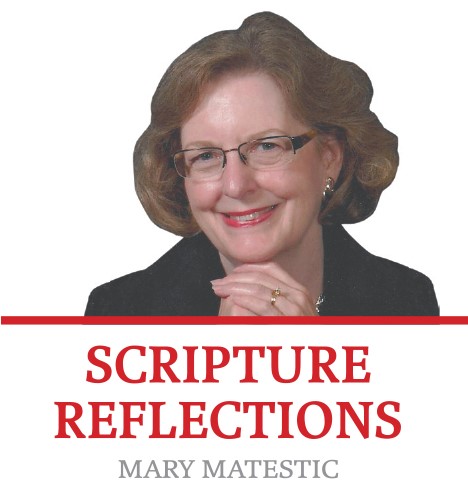Scripture Readings: Jan. 31, 2021
Fourth Sunday of Ordinary Time
Deuteronomy 18:15-20
Psalm 95:1-2, 6-7, 7-9 (8)
1 Corinthians 7:32-35
Mark 1:21-28
Prophets loom large in the world of the Sacred Scriptures. We do not always have a clear sense of the role of the prophet. They are not fortune tellers. They do not have an edge on future events. They are people appointed by God to be the voice of God in troubled times. Impacted by the signs of the times, prophets burn with a fire within. Like Jeremiah, prophets are called to uproot and tear down … to build and to plant. (Jeremiah 1:10) Like Isaiah, their lips are purified by burning coals (Isaiah 6:6) and like Ezekiel, they are told to eat the scrolls of God’s word, which are both sweet and bitter. (Ezekiel 3:3) They cannot keep quiet.
Today, we consider Dr. Martin Luther King Jr. or Mother Teresa modern day prophets. They would tell us that their prophetic urging started with grief: a deep internal lament that “Things are not as they should be.” Through prayer, prophets discern carefully how to use their voices to shape an alternative future. In the Hebrew Scriptures, prophets entered the world of false gods and overbearing kings, challenging them to take a higher road of inclusion and compassion. Most often those warnings were left unheeded.
All prophets revolt against what some scholars call the royal consciousness, which establishes power on the backs of the poor and the marginalized. Moses was one of those prophets called by God to enter a land where Pharaoh built his kingdom by tyrannizing the Hebrew people. God’s deliberate action to call Moses onto the scene changed history. The deliverance of the Hebrew people from the shackles of Egyptian slavery clearly revealed God’s saving power. Moses’ obedience to the call to “set my people free” becomes the paradigm for all prophetic responses.
In the first reading for today, the time for the Hebrew people to enter the Promised Land is at hand. They have followed Moses through the Red Sea and into the desert of wandering. They have been fed and nourished through the intercession of Moses. In the desert, God pitched his tent with the people and the Shekhinah light, the glory of divine presence, became their guide. Now Moses is tired, near death and realizes that someone else will bring the people into Canaan, the land of milk and honey.
Before Moses died, he told the people that God would raise up a prophet like himself, a preeminent prophet who would speak in the name of God. This prophet had to be pure and upright and never use his post in a manipulative way; he was never to speak in the name of another god … lest he should die. Soon the baton would be handed to Joshua and the Moses saga would end.
But not salvation history. Centuries later, the preeminent prophet Moses spoke about was born. His name? Jesus, Emmanuel.
Today, the Gospel takes us to Capernaum where Jesus entered the synagogue on the Sabbath. So powerful were his teachings that people were amazed. The quality of his teaching was different. It was not argumentative, nor pedantic, nor self-righteous. Jesus taught from a deep well of knowledge, witnessing to an authority that came from his Father.
It is dangerous when one gets too close to Jesus. The dark shadows of the soul are brought into the light and the pain of exposure seems intolerable. One must either run and hide or come forth and cry out for mercy. The man with the unclean spirit was caught between two worlds. The divide was painful, and Jesus saw that. The evil spirit recognized the Holy One of God and shouted out in fear. Jesus spoke with authority and commanded the unclean spirit to set the man free.
The status quo is about to be overturned and, though it is amazing to see, it is also hard to accept. Unless we leave the realm of staying locked in amazement, we miss the application of the great miracle in our own lives. The light Jesus offers is not just for the “other guy.” It is for us, as well. We, too, are vulnerable and the darkness that lives in us needs to be expelled.
Who are authentic prophets today? I think Pope Francis is prophetic. He shines the light of truth on a darkened world in his encyclical Fratelli Tutti. He names the evil: political systems that exploit, discard and kill human beings. He names our culture as one of indifference, where loneliness, fear and insecurity impede human growth and development. He points to a brighter world of social friendship and peace in the face of violence found within our economy, politics and social media.
In his vision for an alternative future, Pope Francis encourages hope. “Hope is bold; it can look beyond personal convenience, the petty securities and compensations which limit our horizon, and it can open us up to grand ideals that make life more beautiful and worthwhile.” (55)
Like Jesus, he names the demons and commands them out so that all may live in a new light with hearts burning like prophets.

